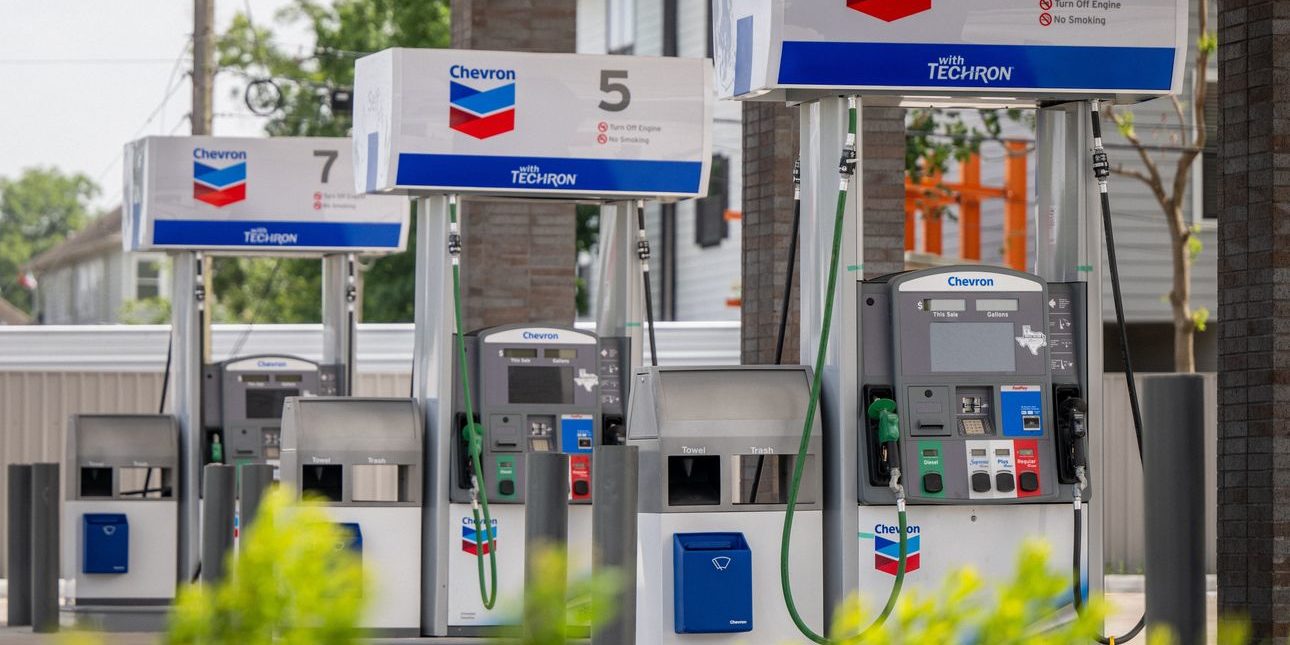WASHINGTON—The U.S. said it would allow Chevron Corp. CVX -0.29%decrease; red down pointing triangle to resume pumping oil from its Venezuelan oil fields after President Nicolás Maduro’s government and an opposition coalition agreed to implement an estimated $3 billion humanitarian relief program and continue dialogue in Mexico City on efforts to hold free and fair elections.
Following the Norwegian-brokered agreement signed in Mexico City, the Biden administration granted a license to Chevron that allows the California-based oil company to return to its oil fields in joint ventures with the Venezuela national oil company, Petroleos de Venezuela SA. The new license, granted by the Treasury Department, permits Chevron to pump Venezuelan oil for the first time in years.
Biden administration officials said the license prohibits PdVSA from receiving profits from Chevron’s oil sales. The officials said the U.S. is prepared to revoke or amend the license, which will be in effect for six months, at any time if Venezuela doesn’t negotiate in good faith.
“If Maduro again tries to use these negotiations to buy time to further consolidate his criminal dictatorship, the United States and our international partners must snap back the full force of our sanctions,” said Sen. Robert Menendez (D., N.J.), the chairman of the Senate Foreign Relations Committee.
The U.S. policy shift could signal an opening for other oil companies to resume their business in Venezuela two years after the Trump administration clamped down on Chevron and other companies’ activities there as part of a maximum-pressure campaign meant to oust the government led by Mr. Maduro. The Treasury Department action didn’t say how non-U.S. oil companies might re-engage with Venezuela.
Venezuela produces some 700,000 barrels of oil a day, compared with more than 3 million barrels a day in the 1990s. Some analysts said Venezuela could hit 1 million barrels a day in the medium term, a modest increment reflecting the dilapidated state of the country’s state-led oil industry.
Some Republican lawmakers criticized the Biden administration’s decision to clear the way for Chevron to pump more oil in Venezuela. “The Biden administration should allow American energy producers to unleash DOMESTIC production instead of begging dictators for oil,” Rep. Claudia Tenney (R., N.Y.) wrote on Twitter.
Biden administration officials said the decision to issue the license wasn’t a response to oil prices, which have been a major concern for President Biden and his top advisers in recent months as they seek to tackle inflation. “This is about the regime taking the steps needed to support the restoration of democracy in Venezuela,” one of the officials said.
The Wall Street Journal reported in October that the Biden administration was preparing to scale down sanctions on Venezuela’s regime to allow Chevron to resume pumping oil there.
Under the new license, profits from the sale of oil will go toward repaying hundreds of millions of dollars in debt owed to Chevron by PdVSA, administration officials said. The U.S. will require that Chevron report details of its financial operations to ensure transparency, they said.
Chevron spokesman Ray Fohr said the new license allows the company to commercialize the oil currently being produced at its joint-venture assets. He said the company will conduct its business in compliance within the current framework.
The license prohibits Chevron from paying taxes and royalties to the Venezuelan government, which surprised some experts. They had been expecting that direct revenue would encourage PdVSA to reroute oil cargoes away from obscure export channels, mostly to Chinese buyers at a steep discount, which Venezuela has relied on for years to skirt sanctions.
“If this is the case, Maduro doesn’t have significant incentives to allow that many cargoes of Chevron to go out,” said Francisco Monaldi, director of the Latin America Energy Program at Rice University’s Baker Institute for Public Policy. Sending oil to China, even at a heavy discount, would be better for Caracas than only paying debt to Chevron, he said.
The limited scope of the Chevron license is seen as a way to ensure that Mr. Maduro stays the course on negotiations. “Rather than fully opening the door for Venezuelan oil to flow to the U.S. market immediately, what the license proposes is a normalization path that is likely contingent on concessions from the Maduro regime on the political and human-rights front,” said Luisa Palacios, senior research scholar at the Columbia University Center on Global Energy Policy.
The license allows Venezuelan oil back into the U.S., historically its largest market, but only if the oil from the PdVSA-Chevron joint ventures is first sold to Chevron and doesn’t authorize exports from the ventures “to any jurisdiction other than the United States,” which appears to restrict PdVSA’s own share of the sales to the U.S. market, said Mr. Monaldi.







